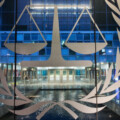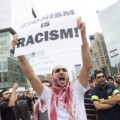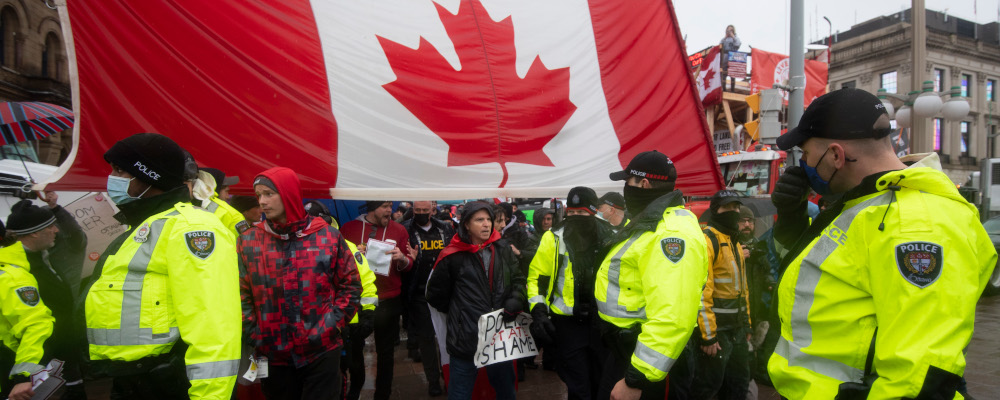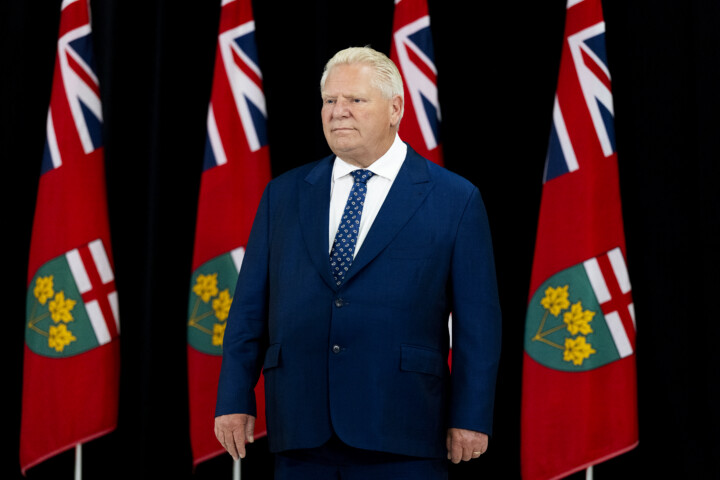With Prime Minister Justin Trudeau and his cabinet’s invocation of the Emergencies Act, we might think that Canada’s rule of law nightmare is finally over. The failures of the Ottawa Police and the intransigence of our politics will be solved with this law.
But the picture isn’t so nice. In fact, the very fact that we need to invoke the Emergencies Act—that it is even on the table—can be laid at the feet of our institutions, and their various failures to uphold the ideal of the rule of law. Even if the Emergencies Act can be properly invoked here — something about which I am not convinced — we are much worse off for its use. We have a rule of law problem in Canada, one related to our capacity to respect the law. The Emergencies Act won’t solve it, and this entire saga shows how deep our problems go, whatever happens with the Emergencies Act.
What does the “rule of law” mean, and why is the Emergencies Act just the tip of the iceberg? The rule of law isn’t just “law and order”— this is just rule by strongman. Instead, the rule of law refers primarily to constraining and guiding state power. On one hand, it’s a legal ideal, protected under our constitutional law, confining what police and others can and cannot do. But it’s also a societal ethic, something that cannot be reduced to paper. In other words, we all have an interest in limiting state power and ensuring consistency in the way laws are applied, because these limits protect all of us in the exercise of our rights and freedoms. If we cannot agree to be bound by rules in the first place, then the law can become just an instrument to punish our opponents, or worse. Our own history reveals how deeply these failures can affect those impacted, generations later.
Hypocrisy destroys the conditions required for the rule of law to flourish. And there was much of it on display. Whether this is a problem of incompetence or an ideological affiliation, no one can blame Ottawa citizens for viewing the Ottawa Police as wholly unable or unwilling to subject the freedom convoy to any laws when, time and again, they have actively assisted the protesters or turned a blind eye as they set up stages, DJ booths, and hot tubs. We are not used to seeing police hugging protesters — quite the opposite, in fact. Despite the province declaring a state of emergency, “protesters” continued their occupation of the downtown core. That the Ottawa Police just now are controlling the situation, even after the granting of an injunction, shows us the extent of the failure. Chief Sloly’s resignation, I fear, is not enough to restore confidence and neither is the Ottawa Police’s relatively professional clearing of the downtown area.
At the border in Windsor, the police similarly were unable to control the situation They eventually cleared the bridge. But this was far too little too late. Our American friends, directly and indirectly, seemed unable to understand how a supposedly serious country could let a blockade of an important economic route go unaddressed for the time it did. In fact, the police did not require a court injunction to allow them to enforce the law. And yet, as time ticked by, and as more goods and people were stopped from crossing the border, the police did nothing.
The police can only be partially blamed. The rule of law lives and dies to the extent the Canadian people guard it, and our leaders internalize it. It should be no surprise that politicians like Pierre Poilievre, when faced with the prospects of Indigenous blockades, waxed poetic about the rule of law. But when the time came to face down the trucker blockades, he instead waxed poetic about the cause of the blockades. Alberta’s Critical Infrastructure Defence Act, hastily passed in response to the 2020 Indigenous blockades, was not deployed at the Coutts blockade. Maybe this law was not necessary in the first place, but the double standard reduces confidence in the law. All of this — in a rule of law society — is not what we should expect of leadership.
The problems run deeper in our politics. We seem unable to disentangle our own potentially valuable political goals from the ideal rules that will apply to all of us, even our mortal enemies. A profound disrespect for the law and rights of others manifested itself in the rash of church burnings across the country over the summer. It does not take imagination to think that many who may now be calling for the enforcement of the law were not doing so when these churches were burned down. In fact, one prominent observer said these arsons were “understandable.” Another, in elation, exclaimed “burn it all down.” And then, in 2020, “solidarity” protesters against the Coastal GasLink Pipeline burned an injunction against them, and blockaded key rail routes that transport important goods.
We seemed to have reached a point where protest is a carte blanche, hypocrisy is the boring norm, and the rule of law is rhetoric. The Emergencies Act is an unjustified last-stop resort, but its remedies should not have been on the table in this situation. The legacy of this period will be a tension at the heart of how our laws should be enforced, especially in cases where deeply disturbing or undesirable conduct might be at play. We all can and should condemn the worst aspects of the Freedom Convoy — the images speak for themselves. And we should seriously think about what it means for our political process to see Nazi flags at any protest, in whatever number. But disputes about the proper scope of protests and blockades are just ramping up, and we need to think seriously about the kind of legal culture we wish to inculcate in response.
Whatever the current level of disrespect for the rule of law, being without it is something no Canadian should entertain. Those who wish to weaponize the law against their supposed cultural enemies will undoubtedly respond that the law should attack bad protests and support good ones. We can imagine those on the right and left saying this exact thing. But it is difficult to trust a state apparatus like the police in Ottawa that seemed to fundamentally lack the capacity to make these fraught decisions.
Where do we go from here? People say the rule of law is “neutral,” but in reality, it is radical. Binding the powers-that-be is a deliberate choice that prevents us from requiring drastic emergency measures. It is not an automatic feature of our society. Without the rule of law, and a commitment to it, there are no limits to what police and others can do in service of their own political preferences. No one — not even those who want to own their political opponents — will like the end result, when the protest is about a cause they may prefer. Re-discovering a commitment to the rule of law should be on the top of our priority list.
Recommended for You

Are Vancouver property rights really at risk? Law professor raises questions after federal government-First Nation deal in B.C.

‘That is not how the legal system operates’: Natasha Hausdorff on how international law is being weaponized against Israel

The government’s proposed anti-hate law is a necessary response to extremism

The government’s proposed anti-hate law is a threat to Canadians’ religious freedoms




Comments (0)